Article of the
Month - September 2021
|
FIG e-Working Week 2021 Keynote: Making the
land and property sector sustainable and resilient:
Ensuring Diversity and Inclusion
Narelle Underwood, Chitra Weddikkara, Paul Olomolaiye, Victoria
Stanley and Chair FIG Vice President Diane A Dumashie
Instead of a paper we would like to share with you a series of video
recordings from the keynote sessions of FIG e-Working Week 2021.
In this recording that is offered to you in this "Video of the
Month Series" Narelle Underwood, Chitra Weddikkara, Paul
Olomolaiye and Victoria Stanley talk with FIG Vice President Diane A
Dumashie about what FIG Member Associations can do to boost equality and
ensure the land and property sector is sustainable and resilient.
On Wednesday 23 June 2021, at the FIG Working Week
in Amsterdam, Netherlands, a panel of land and property leaders came
together to open the conversation on equality Diversity and Inclusion
(D&I) They considered the opportunity that land professionals could make
to improve D&I in our survey profession (land, property and natural
resources) and to inspire the FIG community.
There are increasing calls to recognize and actively implement D&I.
Above all it is an imperative to attract new young professionals into
our profession; to attract the best people we need to demonstrate that
our sector and practices are truly diverse and we operate in inclusive
business environments that respect all human differences in the widest
sense. A key part of this D& I conversation is to do more to increase
the number of women in our professional world.
Objective of the session
By bringing together a panel of active industry professionals and
thought leaders in D&I, they explained why we need to do more to
increase the number of women in our professional world of survey and
provided insightful ideas as how this may be achieved. To
listen to their experiences, vision and hear their discussions on what
we can all do now to achieve better outcomes go to:
https://youtu.be/3N0A17G3fU8
Background
Research clearly shows that high performing organizations are diverse
and inclusive (D&I). In any work place it is important to
understand and recognize the benefits that having a diverse and
inclusive workforce provides. D&I is integral to developing people
within organisations’, to serving clients in the best possible way, as
well as to playing a leadership role in communities.
Essentially it is about valuing everyone in the organization as an
individual and enabling them to be themselves and performing at their
best and is defined as:
- Diversity is about differences and
individuality. To recognize that each of us is different and
that it is important to value and respect individual differences
such as gender, ethnicity, nationality, age, background, education,
working and thinking styles, as well as religious background, sexual
orientation, ability and technical skills.
- Inclusion is about creating an environment
where differences are embraced and where all people feel, and are
valued- where they can bring their differences to work each day, and
where they can contribute their personal best in every encounter
(Diversity in real estate- Clack & Gabler)
A resilient and high performing profession needs to attract and
recruit the best people with the best talent. This talent,
has so many options to choose which profession they enter, so the Survey
profession (land, property and natural resources) needs to demonstrate a
truly equal D&I profession and working environment that respects all
human differences. Attracting this talent will significantly contribute
to the resilience of the profession and each professional’s contribution
to society.
Moreover although D&I in its broadest sense is key, a large part of
the resilience of our profession needs action to improve gender
balance as a key element to tackling the need for the very best talent.
The closing output is an action orientated statement
for FIG members to improve D& I in our professional working practices
and organisations.
Diane Dumashie Vice President of FIG
states:
" It was a real
pleasure to host the working week plenary. This action statement aims to
capture the key messages that you spoke about and to inspire FIG members
in this important topic. The conversation was a great start to the D&I
conversation in the FIG network; and drafting an action orientated
statement such as this may plant the seed for further discussion and
connections in the upcoming and near future."
Watch and be inspired by the keynote session here:
https://youtu.be/3N0A17G3fU8
Statement
in.pdf-format (4 pages)
 |
FIG Statement Diversity and Inclusion
Making the Survey Profession Sustainable and Resilient:
Ensuring Diversity and Inclusion
June 2021
|
 |
Moving from the talk to implementation in Diversity and Inclusion
practices we brought together a panel of leaders to listen to their
views, experience and we gained pointers to embed D&I into our
profession. These are the key message highlights
Above all to implement Diversity and Inclusion (D&I) will need
purposeful planning to ensure D& I is measurably advanced in our
professional practices and organisational leadership. In addition to
voluntary commitments we all have an individual duty to transform our
profession by our focused and widespread participation.
To build resilience into our professions; collectively, across
our unique contexts and areas of expertise, we commit to working
together to
- Center Stage the need for D& I policies in
member organsiations;
- Promote D&I by transferring the effective
tools, practices and gender responsive policies;
- Mobilize our members and partners to accelerate
progress for D&I;
- Foster and expand Women’s leadership in
governance and public decision making.
This means ACTING TO
1. Promote D&I in the culture of our
organisations
We:
- Applaud the younger generation of CEO’s coming through who are
seriously looking and acting on gender and social mobility
- Grasp the new frontiers and be bold in our actions henceforth.
- In the context of D&I policy, there is a slow start in gender
equity with the issues of pay gap. Introducing transparency to
promotion, pay and reward progression is a good start to
implementing change
- Respect that there are increasingly four generations in the work
place and that we will be inclusive and positively learn from each
other
- Acknowledge that there are positive discussions; but that we
need to recognize this is not always so for many people. This
requires us to be attentive to our employees needs
- Observe that there has been generations of bias; but we can
change this with purposeful and focussed actions
Action to:
- When inappropriate language/ behaviors are being used it
is important for others to step in and call out the behavior.
This helps behaviors to change and must be done in the moment. The
power this brings to a minority voice is considerable.
- At last the language of equality, diversity and inclusion is
being used openly, it is important to be aware that the
responsibility lies with all to ensure that our own cultures
adapt
- Take a long hard look in the mirror and ask are we diverse?
Our profession is not alone in needing to increase D&I; we can be
the trailblazer leader for the professions
Key action:
- Appoint within each organisation a dedicated person to hold the
role for equality, diversity and inclusion.
- Evidenced Paul Olomolaiye, Pro-Vice Chancellor
for Equality and Civic Engagement, University of West England a
thought leader in championing D&I.
2. Pipeline of Talent
We:
- Acknowledge there is a continuing need to get the talent
pipeline fit for the future. The future and resilience
of our profession requires much more technical diversity to adapt
and lead in the ongoing development in Ai, Big Data and IoT
applications
- Consider it an imperative to outreach to primary and secondary
school as a key element in the supply chain
- Encourage employers to support entry of employees to further
their university/ professional education
Action to:
- Proactively increase diversity within the profession by opting
to choose from a bigger talent pool, and
- Develop a strategy to change the image of non-traditional
education routes into the profession
Key action:
- Develop and implement an outreach to the young in our
communities
- Evidence: Narelle Underwood Surveyor-General of NSW, Australia
and ambassador for evidenced by ‘Get Kids in Surveying’
https://www.getkidsintosurvey.com/
3. Promote D& I policy and professional
Culture
We:
- Present and implement D& I gender responsive policies in the
work place
- Support the need to centre stage D& I policies in FIG member
organsiations.
- Encourage and facilitate D&I policies that are well-planned to
ensure they promote positive and active change in our organisations.
This can be achieved by transferring the range of effective tools
and practices already available
- Accept that cultural norms do influence how we work; but we are
certain that change can happen slowly and gradually, this increases
the importance of role models in all cultures/ societies.
Action:
- Identify and support our role models drawn from diverse
backgrounds; men and women, young and old, and to support them to
tell their story to facilitate change
- Start the change from our own homes, in our own communities and
countries
Key action:
- Think ‘out of the box’ to make change in our profession
- Evidence: Chitra Weddikkara,
Chartered Architect, Chartered Quantity Surveyor , pioneered a
program for Women skills in construction trades in Sri Lanka
4. Place and society
We:
- Actively support FIG partnerships with donor agencies that
relate to gender equality and societal indications such as networks
and programs with GLTN, World Bank, FAO etc
- Welcome and applaud the efforts of FIG professional standards WG
1.2 women in surveying (https://www.fig.net/organisation/comm/WG/2022_1.2.asp).
- Recognise that SDG’s really plays out across our lives; where we
work, live and socialise. Professioanally we can take
Leadership on the key trends in Environment, Climate Change &
Resilience
- Foster Women- gender equlity in the land sector in particular
tenure equlity
Action:
Take leadership in the
- Land, built environment and natural resource sector by aligned
with relevant SDG’s; and
- SDG 5 that envisages achieve gender equality and empowerment of
all women and girls in cities and human settlements; and
- Especially working toward helping women secure access to and
control over land, property and housing
Key Action:
- If surveyors are enaged in any type of project it is important
to recognise that there is a social obligation to ensure that the
work we do in our contries is inclusive. This obliges
professionals to educate communites on land law and inform and align
with SDG’s
- Evidence: Victoria Stanley, Senior
Land Administrator World Bank, USA, Steering committee partner for
‘Stand for her land’. A program of key thematic areas
critical to improving the political, social, and economic well being
of women and to ensuring gender responsive urban development
https://stand4herland.org/
What can we immediately do about this?
5. Participatory opportunities for FIG
members:
Our members can:
- Mobilize and partner to accelerate progress for D&I to build and
achieve a resilient profession
- Develop a ‘new social contract’ with our employees that fosters
D& I in our organsiation
- Build an equal, diverse and inclusive working culture
- Focus on a well-planned approach to promote positive and active
change in our organisations and leave no one behind in this
thinking.
“Diversity makes sense: it is in the DNA of
humanity which we can take into our organizations;
It is morally right to do so and leads to sustainable organizations.”
“D&I is the responsibility of ALL; not just the minority”
Panelists:
-
Chair, Diane Dumashie, FIG Vice President,
Dumashie Ltd, UK/Ghana
-
Narelle Underwood, Surveyor-General of NSW,
Australia
-
Chitra Weddikkara, Emeritus Professor,
Chartered Architect, Chartered Quantity Surveyor, Sri Lanka
-
Paul Olomolaiye, Professor Construction
Engineering and management, Vice- Chancellor for Equalities and
Civic Engagement, University West England, UK
-
Victoria Stanley, Senior Land Administrator
World Bank, USA
About the keynote speakers
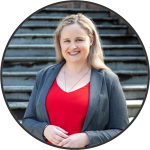 |
Narelle Underwood, Surveyor-General of NSW,
Australia
Narelle Underwood was appointed the 25th Surveyor-General of NSW in 2016 - the youngest person in over 200 years and the first female to hold the position.
A major role within State Government she is responsible for the leadership and regulation of the land and mining surveying profession and plays a key advocacy role in the geospatial industry.
Leading a team of 70 she is responsible for delivering technical projects, policy and legislation and digital transformation. She is the president of the Board of Surveying and Spatial Information (BOSSI), Chair of the Geographical Names Board (GNB), and the NSW Surveying Taskforce
Working in a profession where the average age is 52 and women account for only 3%,
Narelle is passionate about women in leadership and improving the diversity of her profession and other STEM based careers. As a Superstar of STEM and brand ambassador for the Get Kids into Survey program, she is working to increase the public visibility of women in STEM to encourage the next generation, including the promotion of surveying in schools. She is also an energetic mentor for young professionals.
|
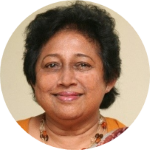 |
Chitra Weddikkara, Dean, Colombo School of
Construction Technology Colombo Srilanka
As Managing Director of Q Serve Pte Ltd .Professor Chitra
Weddikkara’ contribution to the construction sector is
remarkable and counts well over 40 years of experience in the
design and the construction industry both in Sri Lanka and
abroad.
Her professional experience encompasses fields of Architecture,
Quantity Surveying, International construction Management
Dispute resolution, Construction auditing, Loop hole
Engineering, Risk management, value Management, Project
management and Claims preparation. She also works as an
Arbitrator, Adjudicator and is a member of number of Government
advisory bodies in Srilanka She was also a member of National
Procurement Commission.
Currently she is the Dean of the Colombo School of Construction
Technology (CSCT) During her services as the Dean of the Faculty
of Architecture in the University of Moratuwa she successfully
established a unique identity for the Department of Building
Economics of the University. Her academic direction helped
earning accreditation among reputable professional bodies such
as RICS, PAQS, and AIQS etc. Being widely traveled in the
Europe, Americas, Australasia and the Middle Eastern countries,
she is a frequent guest speaker at construction related
professional venues. She has received many awards in the
construction industry for her contribution in her professional
services to the country & abroad. Her contribution as a woman to
construction industry is worth recognizing.
Apart from the academic & professional expertise, Prof.
Weddikkara is the President of Women In-Construction Forum Sri
Lanka which was established as an idea of her, in order to
network and discuss issues relating to the women in construction
sector in Sri Lanka. The main objective is to empower women in
construction of all classes from professional, trade and
skilled, giving them education in such areas and to provide with
opportunities for professional development, education,
networking, leadership training, public service and more for the
women involved in the field from skilled to unskilled.
The WIC-Forum SL, in collaboration with the Ceylon Institute of
Builders and Community Concerns an NGO conducted training
program in skill training to empower suburban and rural women.
|
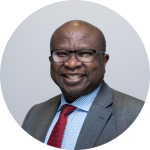 |
Paul Olomolaiye, Pro Vice-Chancellor -
Equalities and Civic Engagement at Univercity of the West of
England
“I am a Professor of Construction Engineering and Management
and currently Pro Vice-Chancellor for Equalities and Civic
Engagement at UWE Bristol. I Chair the Cabot Learning Federation
- a Multi-Academy Trust of 21 Schools in and around Bristol, and
a Non-Executive Director of Avon and Wiltshire NHS Mental Health
Trust. I hold a PhD from Loughborough University in Civil
Engineering and widely published with over 200 journal and
conference publications and authorship of 2 major books on
Construction Productivity and Stakeholder Management. I am
passionate about the experiences of the more than 3000 staff and
30000 students at UWE-Bristol and our collective responsibility
as a Civic University in our region and beyond. I am happily
married with 3 grown-up children and active in the community in
various charitable activities and organisations.”
|
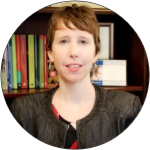 |
Victoria Stanley, Senior Land Administration
Specialist at World Bank
Ms. Stanley is a Senior Land Administration Specialist at the
World Bank. She has worked in more than 20 countries
across Africa, Eastern Europe, Central Asia, and Latin America.
She has worked across a wide range of land issues including land
reform, administration, governance and policy. She also
has experience in the areas of rural and municipal development,
gender analysis and inclusion, information technology, public
service delivery, institutional reform, and strategic planning
and budgeting.
Prior to joining the World Bank Ms. Stanley worked for several
NGOs on research and development issues, and for the US
Department of the Interior in administration and budgeting.
Ms. Stanley has a Master of Public and International Affairs
from the University of Pittsburgh Graduate School for Public and
International Affairs and a Bachelor of Arts from Cornell
University.
|
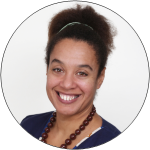 |
Chair:
Diane A Dumashie, FIG Vice President;
Director Dumashie Ltd; Trustee Lionheart Benevolent Fund.
Dumashie Ltd was established to support public sector client
organisations in the UK, Africa and Caribbean in complex
projects involving land management, spatial planning and
economic development. Helping clients to frame those
difficult conversations, Diane coordinates and delivers
strategic projects that have a clear social, economic
livelihood agenda linked to land. Accredited to CEDR, Diane also
mediates public and privates sector disputes
UK projects involve managing land and infrastructure
regeneration schemes. Internationally Diane is an
independent and innovative country project leader increasingly
oriented to institutional development and training, she has
undertaken consultancies for UN Habitat, World Bank, the
Commonwealth Secretariat, and partnered with FAO. An
expert in the areas of African land issues her work has seen her
involved with Ministries in Ghana, Mozambique, Tanzania/Zanzibar
and Kenya and establishing and operating a pan- African FIG
Regional Capacity Development Network, working with land
professionals across fourteen African countries.
A passionate ambassador of societal equitable access to land
and resources, Diane has led on gender equality initiatives and
land tools. In 2012 Diane established ‘Leadership 4
Change’ dedicated to designing and facilitating participatory
knowledge transfer programs to assist African professionals.
She holds a Doctorate in Land Policy Planning & Integrated
Coastal Area Management; bringing together the needs of coastal
communities, economic and industry users and physical dimensions
|





























